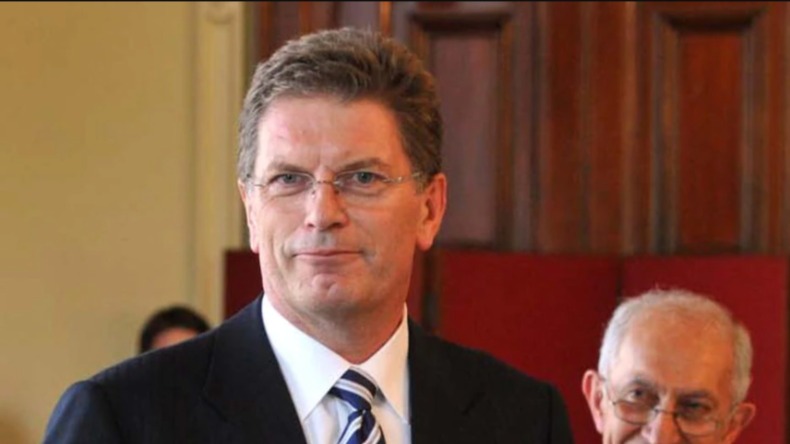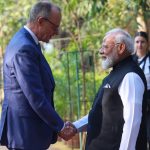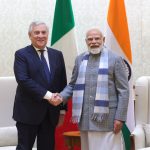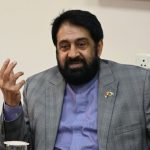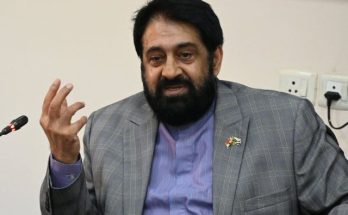MELBOURNE: Prime Minister Narendra Modi’s landmark visit to Australia has raised the bar for India-Australia relations, prodding the two countries to know more about each other and to do more with each other. The May 22-24 visit also galvanised the political establishment in Australia to think afresh about India as a rising global power. In this interview, Edward Norman “Ted” Baillieu, a former Premier of Victoria, and an Indophile, tells Manish Chand, CEO, Centre for Global India Insights, that India’s rise is inevitable and the momentum in India-Australia relations is unstoppable. Ted Baillieu, an eminent architect and a member of the Board of the Australia-India Council, is not an astrologer, but the tall stately Australian politician is confident that India will be the intellectual and strategic focus of the world in years to come.
Q) PM Modi’s visit to Australia was widely seen as a big success. But India has not loomed high on the radar screen of Australians and Australia for some time. And now we had two-way visits by the two prime ministers in around three months. Do you think this level of high-level engagement would encourage people to know more about India?
A) Yes, I think it does. Over the last 12 months, we have had multiple visits from Indian cabinet ministers to Australia. We have hosted many of those, more than we have sent to India. In the future, there would be many more visits in both directions. This is going to normalize these connections and boost relations. When Australians see Indian ministers here, they are quite impressed with their knowledge and commitment to India-Australia relations.
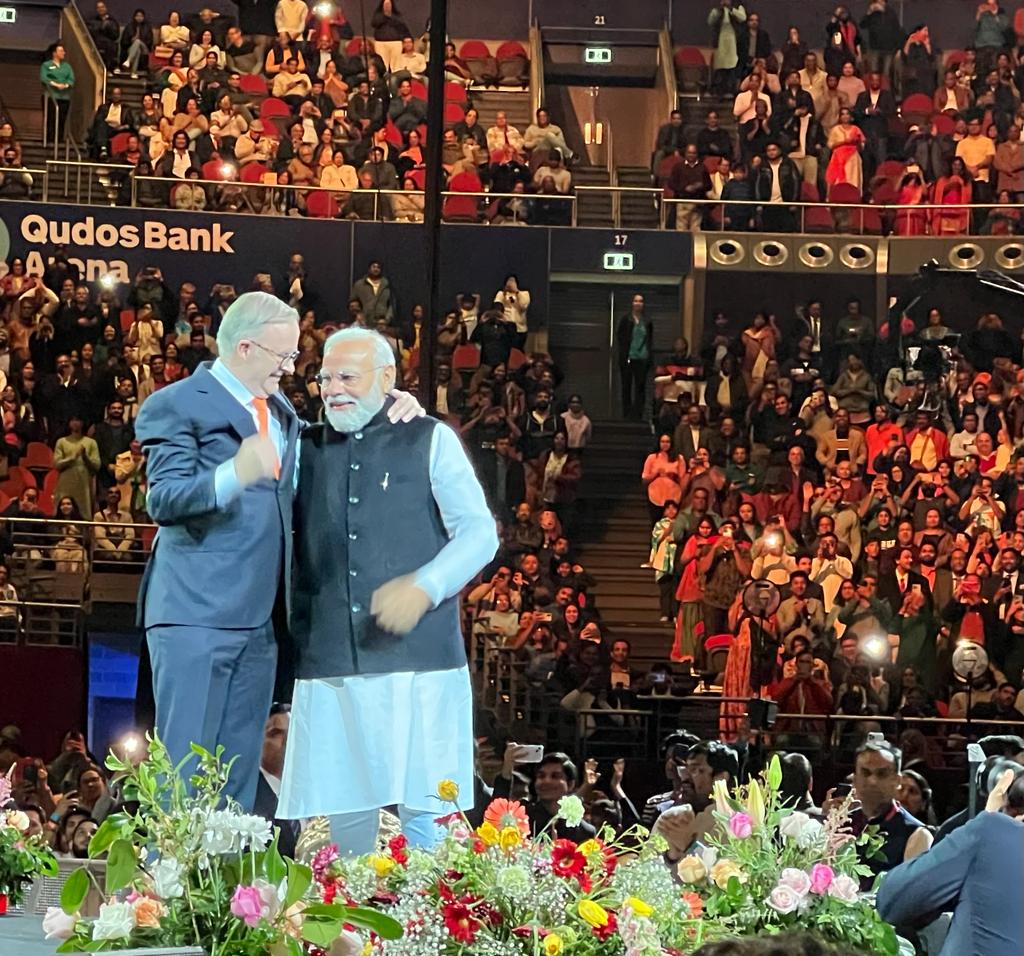
Q) Australia has had a conflicted relationship with China. Is there a conscious strategy on the part of Australia to move away from China or to diversify its network of relationships?
A) Well, some people like to think of it in terms of India versus China. But I have a different view. India has an average age of 10 years younger than China, 10 years younger than Australia, and other parts of South Asia are younger again. India is growing fast, in population, in economy and in political change. Prime Minister Modi’s reforms have been powerful. They haven’t always been uncontested, but they’ve been very powerful in changing India. India is changing in all those respects. I see our relationship changing.
And I see the importance of the relationship with Australia changing and I describe that change as “India Inevitable.” It has to happen, and it will happen. And it will be to mutual benefit. That is why I was so pleased to see Mr. Modi use expressions such as mutual respect in terms of India’s relationship with Australia. In a sense, in terms of population, we are a small part of the 28-odd states in India. Once upon a time, Australians used to be subjected to light-hearted commentary that Australia was the 51st state of the US. Now, in a way, we’re going to be the 29th state of India! We are going to get closer to India – there is something inevitable about it, and that’s going beyond the notion of an alternative to China.
But we need to do more. We need to take our population to India into acquainting with how things operate, and how you can do business easily in India. And the extraordinary rise of India in the ease of doing business is very impressive. Many of our companies now have CEOs of Indian backgrounds. So, it is a bit of a quiet takeover really.
Q) India’s global stature in the world is rising. India is currently holding the G20 presidency. How do you look at India’s G20 presidency?
A) Well, geopolitically, strategically, India is well placed. A large, growing economy, a growing population, much younger than the West, much younger than China. If you look at 2050, in the next 30 years, the world will grow by around 2 billion people. The strategic focus of the world in the next 20-30 years will be less about Europe, less about the Pacific Rim and more about the Indian Ocean region. And Australia is a part of that. India is right in the heart of that region. It has been traditionally through all the trade routes, through the transport on land or sea. So, I see India at the centre of the world’s growth in the next 30 or 40 years. It will at the same time be at the centre of the world’s strategic focus and the world’s intellectual focus.
Q) During his visit to Australia, Prime Minister Modi met top CEOs individually as well as in round-table setting. The two sides have decided to accelerate negotiations for concluding CECA by the end of the year. However, Australian investment in India is nowhere near the potential. What’s the way ahead?
A) Historically, Australian business leaders have used the phrase, “it is too hot.” By that they mean, it’s not familiar. This is now changing in so many ways. Many people are vigorously promoting India-Australia relations. And I’ve been myself promoting. And I do presentations, where I talk about the way you can do business in India. There’s a big opportunity for investment. Some of the mutual funds investing in India are demonstrating success.
Q) Looking ahead, what is the next frontier for India-Australia cooperation?
A) People-to-people contacts need to be accelerated through various means, and not just business, tourism, cultural understanding. The India-Australia relationship requires some recognition. India’s got new friends everywhere in the world. We are not the only ones. Everybody has seen the future of India. So, everybody wants to be part of the India growth story.
India is in this delightful situation where it can choose. We would like India to choose Australia as a natural partner. But that means we have to work harder because in many ways we need India more than India needs us. You’re either going to be part of the India story, or you’ll be left behind. …goodness, greatness, tenderness in every respect. India is a master of it all.
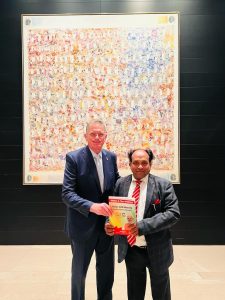
(Manish Chand is CEO, Centre for Global Insights India, a think tank focused on global affairs. He is Editor-in-Chief, India Writes Network and India and the World)
Author Profile

- Manish Chand is Founder and Editor-in-Chief of India Writes Network (www.indiawrites.org) and India and World, a pioneering magazine focused on international affairs. He is CEO, Centre for Global India Insights, an India-based think tank focused on global affairs.
Latest entries
 India and the WorldJanuary 13, 2026India, Germany raise the bar for defence, economic ties
India and the WorldJanuary 13, 2026India, Germany raise the bar for defence, economic ties India and the WorldDecember 12, 2025India-Italy bonding: Tajani’s visit raises the bar for business, maritime ties
India and the WorldDecember 12, 2025India-Italy bonding: Tajani’s visit raises the bar for business, maritime ties In ConversationNovember 26, 2025G20 is a Force for global Good
In ConversationNovember 26, 2025G20 is a Force for global Good articlesNovember 26, 2025Rescuing G20 from North-South divide: Ubuntu Moment
articlesNovember 26, 2025Rescuing G20 from North-South divide: Ubuntu Moment

